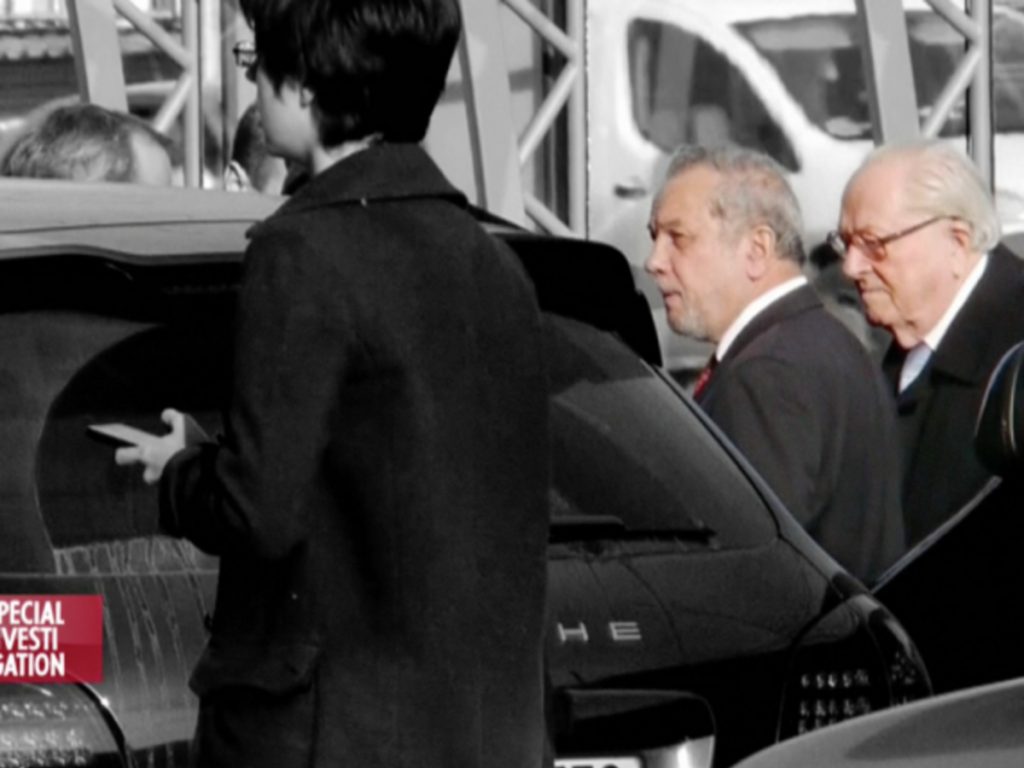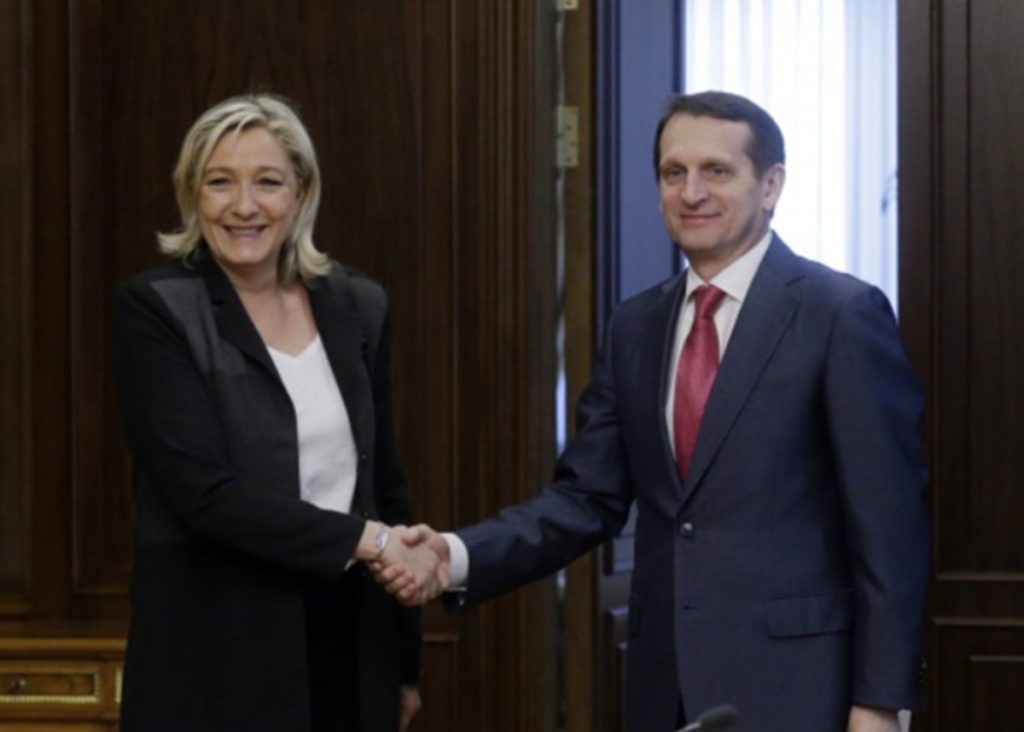In France, the main resource of Russian “soft power” has been the descendants of white émigrés – representatives of noble families. While already French, many of them nevertheless cooperated with the Russian authorities for years, helping the Kremlin to recruit allies among the French opposition and business community, and promoting a narrative of Western Russophobia and genocide of the inhabitants of Donbas.
Today, structures associated with them, with the support of the Russian Foreign Ministry, carry out actions against NATO and the “government in Kyiv”. Insight News reconstructs only some fragments of this “web” – its true scale has yet to be established.
At the end of 2014, a letter entitled “Solidarity with Russia”, signed by more than a hundred representatives of the Russian nobility abroad, circulated online. It was drafted by Prince and Princess Dmitry and Tamara Shakhovskiy with the assistance of a certain initiative group called Russian Bridge. The authors of the declaration reported that they could not tolerate the daily “slander against contemporary Russia, its leadership, and its president” and were indignant at the “shameful silence” by the European authorities and media of the “crimes” of the Ukrainian army in Donbas.
In an interview with Rossiyskaya Gazeta, Prince Dmitry Shakhovskaya, who heads the Union of Russian Nobility in France, admitted that for descendants of the white emigration “Crimea has never ceased to be Russian”: “It feels like we are now returning to. ‘reconstructing Holy Russia’. All my life I have defended those foundations that were handed down to me by my parents, and the main one is the unity of the Russian land. Therefore, when it is strengthened, as it was with Crimea, it means that the country is returning to normal, and this is a certain manifestation of its vitality.

“It is faith in Russia that should be the linchpin that we must hold on to. And that, in part, is what saves the whole world,” Shakhovskoy proclaimed as he received the 2019 award for “Contribution to International Cooperation” from the hands of Foreign Minister Sergei Lavrov. Two of his sons live in Moscow.
The eldest, Ivan, has worked in recent years as deputy chairman of St Petersburg’s Committee for the Protection of Monuments of History and Culture, while the youngest, Illarion, is associated with Konstantin Malofeev’s Safe Internet League. It is Malofeev who is considered the Kremlin’s curator of relations with the descendants of the “old” Russian emigration and, through them, with representatives of European conservative circles.
Election interference in France
One of Malofeev’s closest associates in this field was Paris-born prince Zurab Chavchavadze, former chairman of the Supreme Monarchical Council and representative of the “head of the Russian Imperial House” in the Russian Federation. Malofeev, the founder of the Tsargrad TV channel, said he met the prince when he was 16 and he became “a guide to the world of pre-revolutionary Russia and Orthodoxy, the Russia that we have lost”.
Chavchavadze is related to almost all the projects of Malofeev: he was the CEO and a member of the Board of Trustees of St. Basil the Great Charitable Foundation, headed the eponymous private Orthodox Gymnasium in the Moscow suburbs, was a member of the supervisory board of the monarchist society “double eagle”, which fights for the restoration of the Russian Empire. And he also helped the orthodox oligarch establish contacts with the French far-right.
In 2014-2015, the French media released a series of investigations into the links between Marine Le Pen’s Front National (since renamed the Rassemblement Nationale) and the Kremlin. Mediapart revealed that the Front National had received a €9 million campaign loan from the First Czech-Russian Bank, which was owned by Roman Popov, a businessman close to Gennady Timchenko.
A few months later, another €2 million came into Jean-Marie Le Pen’s account from a Cypriot entity owned by a “former KGB officer” and former head of VEB Capital, Yuri Kudimov. The financial assistance from Moscow was clearly seen by observers as rewarding the far right for supporting the annexation of Crimea and Russian policy towards Ukraine in general.
At the same time, Canal+ established that it was Zurab Chavchavadze who met Jean-Marie Le Pen in Moscow in October 2014 – during this secret visit, the founder of the National Front met with Malofeev and the odious philosopher Alexander Dugin.
In a conversation with journalists, the Georgian prince admitted that he had known Le Pen’s family for a long time and intimately, and also said that Malofeev and the leader of the “National Front” had met in Paris. Asked whether the Russian oligarch was funding French nationalists, Chavchavadze was evasive: “You will never be able to prove it.” Jean-Marie Le Pen himself confirmed to journalists that Malofeev helped him get a campaign loan.

In late May 2014, Malofeev and Chavchavadze hosted a closed forum in Vienna to mark the 200th anniversary of the formation of the “Holy Alliance”. The Swiss publication Tages-Anzeiger described it as a gathering of nationalists intent on recreating a pan-European conservative movement to oppose the liberal gay lobby ruling Europe.
Alexander Dugin headlined the event, while among the participants was MEP and international adviser to Marine Le Pen Emeric Choprad, the niece of National Front leader Marion Marechal-Le Pen, as well as right-wing leaders from Austria, Bulgaria, Hungary, and other countries.
Representatives of many of them had previously attended the illegal referendum in Crimea as international observers. The guests delivered eulogies to Vladimir Putin, calling him a “savior” and a reincarnation of Alexander I, who had initiated the creation of the Holy Alliance of European Monarchies after the overthrow of Napoleon.
As we have written before, France is one of the most attractive targets where Russian propaganda has extended its tentacles. Despite clear evidence of collaboration between representatives of nationalist and ultra-conservative parties and Russian secret services, France’s national security authorities have been slow to respond to these kinds of provocations, naively hoping that they cannot significantly influence strategic decisions. However, this could change if the leaders of the Russian secret services decide to take active action inside France.

